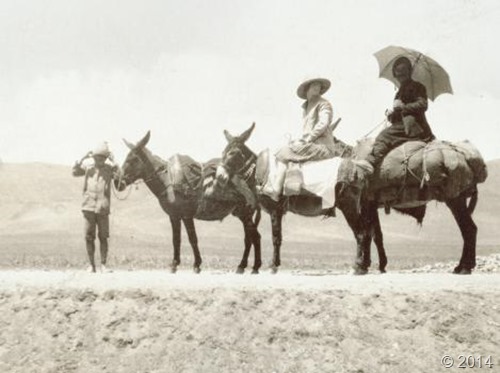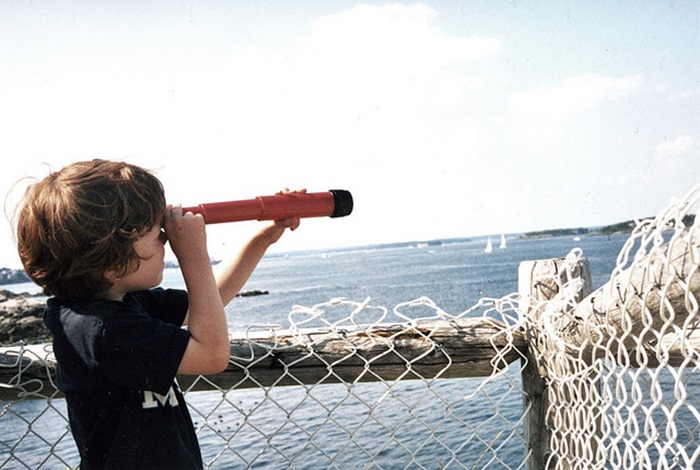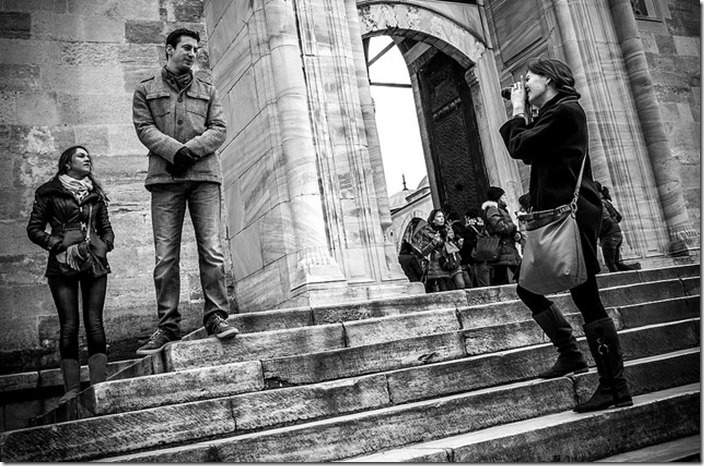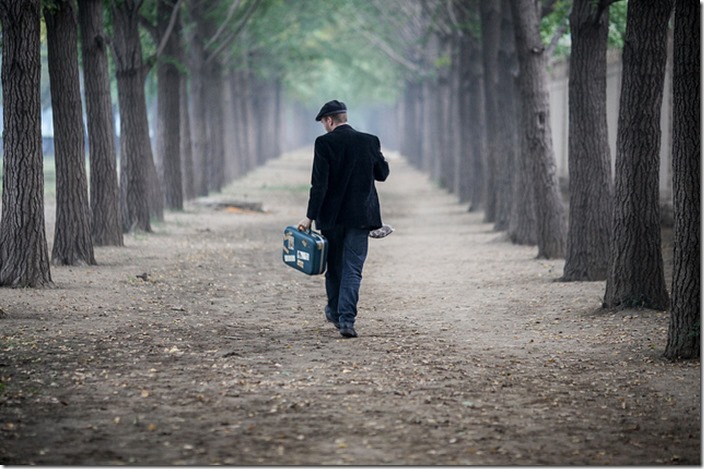The Pleasure of A Lone Traveler
Travel has been around since ancient times. As seasons changed, animal migrated and human travelled to survive, though the distance was limited to a small area. As civilization became established and spread geographically, travel became a necessity for commercial, educational, religious, military and last but least, leisure purposes.
The first guidebook The Description of Greece was written by Pausanias – a Greek geographer, traveller, and “pedestrian writer” – around A.D. 160. There are record of writers, philosophers, religious masters, merchants, politicians, people from all corners of life, who climbed mountains, crossed oceans, to feed their hunger for adventures and knowledge, as they sought a glimpse of the world’s vastness and the thrill of the unknown. Withstanding thousands of years, travel remains both timeless and timely. Freya Stark (1893 – 1933), one of the world greatest travellers, wrote about its mysterious joy in her book Baghdad Sketches:
![quotation mark[11] quotation mark[11]](http://static1.squarespace.com/static/56cecb5ca3360c3f9d45c441/56d54306fd2119f92a653ffe/56d54309fd2119f92a6541c7/1456816905693/quotation-mark11_thumb.png?format=original) To awaken quite alone in a strange town is one of the pleasantest sensations in the world. You are surrounded by adventure. You have no idea of what is in store for you, but you will, if you are wise and know the art of travel, let yourself go on the stream of the unknown and accept whatever comes in the spirit in which the gods may offer it.
To awaken quite alone in a strange town is one of the pleasantest sensations in the world. You are surrounded by adventure. You have no idea of what is in store for you, but you will, if you are wise and know the art of travel, let yourself go on the stream of the unknown and accept whatever comes in the spirit in which the gods may offer it.
Tourism industry has flourished over nearly two centuries since Thomas Cook, the father of inclusive tours, invented the use of chartered train to transport mass amount of travellers in 1841. The term “tourist” was born. Now in the 21st century, there is a strong line drawn between the definition of a “tourist” and a “traveller”, especially in the eyes those who regard themselves as “legitimate” travellers. A “tourist” is defined as someone who sits on tour buses, visits popular destinations, stays at comfortable hotels, eats at restaurants for foreigners, follows the tour guide who raises a silly colorful flag, takes photos of things that the 2,500 other tourists also take, comes home feeling he has seen a great deal but actually hasn’t tasted even a peanut of the city’s real life. Obviously then, “tourist” is referred to with a good level of sarcasm.
I been to more than 25 countries, sometimes as a tourist, sometimes as a traveller. And I think there is nothing wrong with being either of them.
 The first and most important thing about travelling is to choose an objective – this decision that makes other decisions. To explore, to discover, to reflect and find a sense of self, to shop, to eat, to relax and recharge, to strengthen the relationship with your partner, to strengthen the relationship within a group, and so on. No objective is better or worse than others, as soon as we have one. (Like a friend of mine who said he wanted “drugs, sex, and rock n’ roll”. I don’t know if he was kidding. Anyway, he ended up going to Korea and I wished him luck.)
The first and most important thing about travelling is to choose an objective – this decision that makes other decisions. To explore, to discover, to reflect and find a sense of self, to shop, to eat, to relax and recharge, to strengthen the relationship with your partner, to strengthen the relationship within a group, and so on. No objective is better or worse than others, as soon as we have one. (Like a friend of mine who said he wanted “drugs, sex, and rock n’ roll”. I don’t know if he was kidding. Anyway, he ended up going to Korea and I wished him luck.)
 The second most important decision, which is dictated by the first one, is to choose a companion. Here is where things get a little tricky.
The second most important decision, which is dictated by the first one, is to choose a companion. Here is where things get a little tricky.
 It is obvious that if one wants to strengthen a relationship, then the person in the quest are required: spouse, partner, friends, colleagues, etc.
It is obvious that if one wants to strengthen a relationship, then the person in the quest are required: spouse, partner, friends, colleagues, etc.
I missed those lazy trips with my boyfriend when we lied flat half-asleep on the beech, came back to town to eat good food and trolled around to enjoy the vibe and recharge. We wanted to chill without pressing each other to explore everything.
I also loved all the team days when my colleagues and I just want to enjoy each other company. A trip provides wonderful opportunity to draw people closer.
 When it comes to exploration, to discovery, to reflection and seeking a sense of self, then it is my conviction that one needs to travel alone. A very few travel partners can be the exception, provided that they have a compatible zest for discovery. It is wonderful to reunite with old friends or make new friends on the road, but the journey should be of your own.
When it comes to exploration, to discovery, to reflection and seeking a sense of self, then it is my conviction that one needs to travel alone. A very few travel partners can be the exception, provided that they have a compatible zest for discovery. It is wonderful to reunite with old friends or make new friends on the road, but the journey should be of your own.
Paulo Coelho, the incredible Brazilian writer and pilgrim who walked the Road to Santiago, wrote a passage on how group kills adventure:
It will be harder work, no one will be there taking care of you, but only in this way can you truly leave your own country behind. Travelling with a group is a way of being in a foreign country while speaking your mother tongue, doing whatever the leader of the flock tells you to do, and taking more interest in group gossip than in the place you are visiting.
I found this utterly true. Italy is the destination I love the most, less for its Roman magnificence, and irresistible charm – which is true, but more because I travelled alone there for the longest amount of time, thus tasted the most of its quintessence. In those weeks, the more I recorded my steps in my travel journal, the clearer my sense of self became. In solitude I found my best travel companion: myself.
When Freya Stark died at the age of 100, this bold explorer and polyglot had written 24 books and published eight volumes of letters about her journeys. Through living a life of enormous vigor, she revealed an important realization: “Solitude, I reflected, is the one deep necessity of the human spirit to which adequate recognition is never given.”
- - -
Visit also “What Happens to Us When We Travel”



![quotation mark[11] quotation mark[11]](http://static1.squarespace.com/static/56cecb5ca3360c3f9d45c441/56d54306fd2119f92a653ffe/56d54309fd2119f92a6541e3/1456816905744/quotation-mark11_thumb1.png?format=original)
